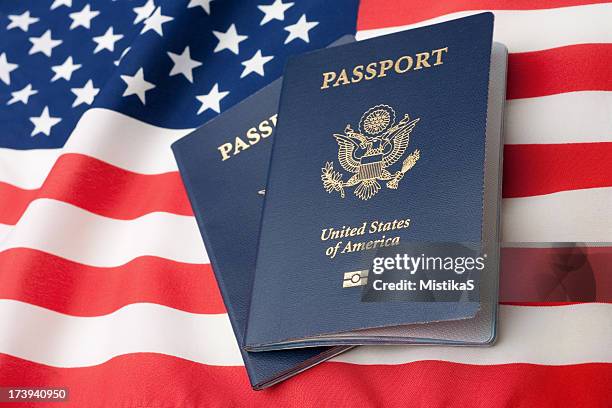
The process of immigration is often complex, involving numerous documents and multiple steps. One of the most crucial documents that plays a pivotal role in immigration procedures is the birth certificate. In the United States, a birth certificate serves as a primary document for proving one’s identity and nationality. However, for this document to be recognized by foreign governments or international institutions, it often needs to go through a process called attestation. US birth certificate attestation can significantly simplify immigration procedures, ensuring that this critical document is accepted without question by immigration authorities.
This article explores the importance of US birth certificate attestation in the immigration process, how it simplifies the journey for immigrants, and the specific steps involved in completing this crucial task.
The Importance of Birth Certificate in Immigration
A birth certificate is more than just a piece of paper documenting an individual’s birth details. In the context of immigration, it serves as the foundation for proving an individual’s identity, age, and nationality. Governments across the world rely on this document to verify an individual’s personal history, especially when it comes to immigration processes. Whether one is applying for a work visa, permanent residency, or citizenship, the birth certificate often forms a cornerstone in the collection of required documents.
For instance, many immigration applications require proof of identity, and a birth certificate is the most straightforward document to provide for that purpose. It connects the applicant with their place and date of birth, as well as the legal identification of their parents. In cases where the individual’s identity is questioned, this document can offer the necessary confirmation to move forward in the process.
However, birth certificates issued in the United States, like many other personal documents, are often not recognized in their raw form by foreign authorities. They must first be attested or legalized to make them valid for use abroad. This is where US birth certificate attestation becomes a crucial aspect of simplifying immigration procedures.
What is Birth Certificate Attestation?
Birth certificate attestation is the process of verifying and validating the authenticity of a birth certificate so it can be used for official purposes in foreign countries. This process essentially proves that the document is legitimate and issued by a competent authority. Attestation may be required for various reasons, including immigration, employment, study, or residency abroad.
In the US, the attestation process involves several steps, starting from the local or state level and moving up to the federal government. In some cases, it also requires the involvement of the embassy of the country where the individual intends to use the document. The entire process ensures that the foreign government can trust the document and accept it as valid evidence of identity and nationality.
How Birth Certificate Attestation Simplifies Immigration Procedures
Attestation of a US birth certificate plays a pivotal role in streamlining immigration procedures. Here’s how it simplifies the process:
1. Ensures Legal Recognition of Documents
The primary function of birth certificate attestation is to ensure that the document is legally recognized in a foreign country. Without attestation, a birth certificate may be rejected by immigration authorities, leading to unnecessary delays or even the outright refusal of an immigration application. When a birth certificate is attested, it carries the official seal and signatures that confirm its legitimacy, ensuring that immigration authorities accept it as a valid document.
This recognition is particularly crucial when applying for visas, work permits, residency, or citizenship. Immigration procedures often require a number of official documents, but the birth certificate is one of the most fundamental. By having it attested, individuals can avoid the stress and uncertainty of whether their application will proceed without issues.
2. Reduces Delays in Application Processing
One of the biggest challenges in immigration is the potential for delays in application processing. These delays can be caused by missing documents, incomplete paperwork, or issues with verifying the authenticity of documents. By obtaining birth certificate attestation early in the process, applicants can avoid this pitfall.
Immigration officials are often cautious about accepting documents from foreign nationals, especially when those documents originate from another country. Attestation removes the doubt, assuring immigration officers that the document has already been thoroughly vetted and approved by the issuing country’s government. This helps to expedite the processing of applications, reducing unnecessary hold-ups.
3. Enhances Credibility and Trustworthiness
When immigrating to a foreign country, the credibility of an applicant’s documents is paramount. Governments are wary of fraudulent activities and illegitimate documents, making it essential for applicants to provide authentic and validated paperwork. A birth certificate that has undergone the attestation process signals to immigration authorities that the individual has taken the necessary steps to verify the document’s authenticity.
In some cases, immigration authorities may view an unattested birth certificate with suspicion, leading to further scrutiny. Attestation provides the reassurance that the document has been issued by the appropriate authorities and has passed through a rigorous verification process. This helps to enhance the applicant’s credibility and trustworthiness in the eyes of immigration officials.
4. Facilitates Multinational Recognition
If an individual is immigrating to a country that is part of The Hague Apostille Convention, the birth certificate attestation process becomes even more streamlined. The convention simplifies the legalization process for documents intended for use in foreign countries by providing a single certificate of authenticity known as an “Apostille.”
With an Apostille, a US birth certificate can be recognized by any of the 120+ member countries of the convention, eliminating the need for further authentication by embassies or consulates. This is a game-changer for individuals immigrating to multiple countries or who may need to use their documents in different jurisdictions.
5. Prepares for Future Legal and Administrative Procedures
The benefits of birth certificate attestation go beyond the immediate immigration process. Once an individual has successfully immigrated, there are often additional legal and administrative procedures that they must navigate. These may include registering with local authorities, applying for social services, enrolling in education, or seeking employment. In many cases, attested documents will be required to complete these processes.
By obtaining attestation early on, individuals can avoid the hassle of having to go through the verification process again when they need to use their birth certificate for other purposes. This foresight not only simplifies the immigration process but also sets the stage for a smoother transition into the new country.
Steps Involved in US Birth Certificate Attestation
While birth certificate attestation offers numerous benefits, it’s essential to understand the steps involved in completing the process. The following is a general outline of the attestation process for a US birth certificate:
1. Obtain a Certified Copy of the Birth Certificate
The first step is to obtain a certified copy of the birth certificate from the relevant state or county vital records office. This certified copy will contain official signatures and seals, which are required for the attestation process.
2. Notary Public Authentication
In some cases, the birth certificate may need to be notarized by a notary public. The notary will verify the authenticity of the document and attach a notarized statement confirming its validity.
3. State-Level Authentication
Next, the birth certificate may need to be authenticated by the Secretary of State in the state where it was issued. This step ensures that the document is valid for use at the national level.
4. US Department of State Authentication
For use in foreign countries, the birth certificate must also be authenticated by the US Department of State. This step is essential for attesting the document at the federal level.
5. Embassy or Consulate Attestation
Finally, the attested birth certificate may need to be submitted to the embassy or consulate of the country where the document will be used. The embassy will apply its own authentication, completing the process.
6. Apostille (If Applicable)
If the destination country is a member of The Hague Apostille Convention, the applicant may be able to skip the embassy attestation step and instead request an Apostille from the US Department of State.
Conclusion
In the labyrinthine world of immigration, ensuring that all documents are correctly verified is key to a smooth and successful process. US birth certificate attestation offers a solution by providing a reliable and legally recognized means of validating one’s identity. Through attestation, individuals can ensure that their birth certificate is accepted by foreign immigration authorities, reducing delays, enhancing credibility, and simplifying the immigration process overall. By following the appropriate steps and understanding the importance of this procedure, individuals can make their transition to a new country more seamless and less stressful.


